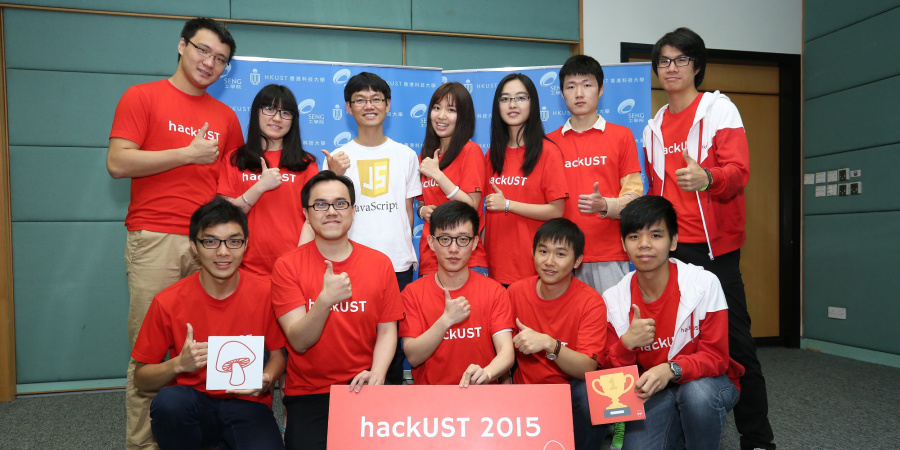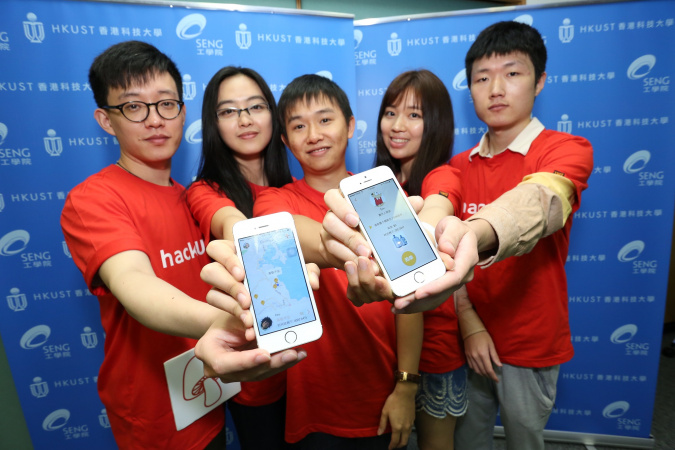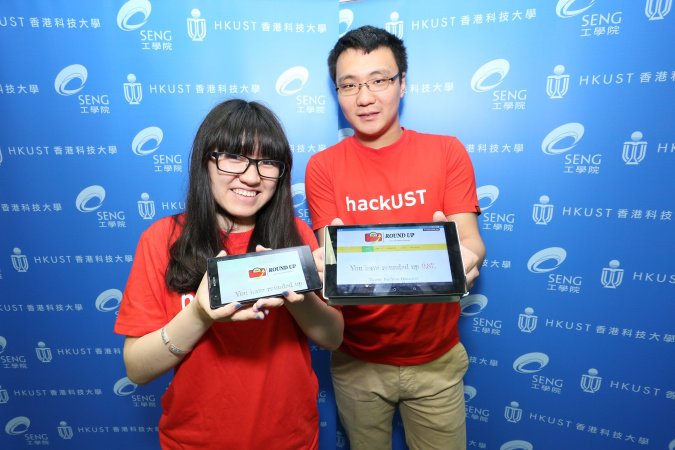HKUST Hosts Hong Kong’s First University Student-Led Hackathon
The first university student-led Hackathon in Hong Kong was successfully held on 28-29 March at the Hong Kong University of Science and Technology (HKUST), drawing over 220 students and alumni in 47 teams from various local universities. The activity, entitled Hackathon@HKUST, was a 24-hour coding competition in which participants collaborate intensively on a software or hardware project, centering on one of the three themes of this year, namely charity, entrepreneurship, and women consumers.
Hackathon@HKUST was co-organized by a group of HKUST students and Tencent Foundation, with support from different units of the University, including the Engineering School, Business School, Entrepreneurship Center, Women Faculty Association and various HKUST alumni associations, as well as the start-up community. It aimed to promote students’ creativity and entrepreneurship spirit, and provide a platform where they can learn from industry professionals and entrepreneurs.
It was the second year HKUST students organized the contest – the first university student-led Hackathon in Hong Kong. This year, the competition was open to students and alumni of all local universities. The number of participants doubled from 105 in 24 teams last year to 225 in 47 teams this year.
In Hackathon@HKUST, participants identified a problem themselves and came up with ideas to solve it. The flexibility to find and solve their own problems enabled students to think creatively and develop innovative work. They worked in teams to design and build a prototype for a software or hardware application within 24 hours, and then presented their work to a judging panel comprising a representative from Tencent Foundation, founders of start-up enterprises, industry professionals, faculty members of HKUST and a partner institution. Some industry experts and entrepreneurs served as mentors to advise the teams during the 24 hours, giving participants a great opportunity to interact with members of the start-up community.
A total of 17 awards were presented to 12 teams or individuals during the competition. The Tencent Charitable Prizes went to RoundUp (donation website based on online transactions), Chariful (app which gamifies charitable acts), and Everhelp (app which helps people to use their fragmented time to do charity acts). Each of these three teams also received other awards, with RoundUp also receiving the 6waves Most Innovative Award and Tencent Audience’s Favorite (2nd Runner Up); Chariful also receiving the Tencent Best Design Award; and Everhelp also receiving the Radica Best Entrepreneurship Prize. The Tencent Best Entrepreneurship Prize and the HKUST Women Faculty Association Best App for Women Consumers went to Advancer (app for single mothers to deal with their daily problems). The GoGoVan Best Entrepreneurship Prize went to Freeloader (a location-based event-finding app). The PacificLink iMedia Best Entrepreneurship Prize went to Donation (use of QR scanning to digitize unwanted coins during cash payment). The Tencent Best Presentation Award went to heyPal (app that calculates friends’ availabilities from their schedule). The Tencent Best Developer Award went to Efemel (hardware module attached to a pen to extract physically drawn strokes and digitally represent them on a website in real-time). The DJI Best Student Organizer Award went to Long Hoang, an undergraduate student of Computer Science and Engineering, HKUST. The DJI Most Interesting Clip Award went to Kar Long Fan of HKU. The Tencent Audience’s Favorite (Winner) went to Baby Team (app that captures memories of a child’s growth) and Tencent Audience’s Favorite (1st Runner Up) went to Snatchit (online shopping app that incorporates social networking function).
Along with the 24-hour main Hackathon competition, a lot of pre- and post-Hackathon activities were organized to complete the Hackathon experience. To prepare participants for the Hackathon competition, nine workshops, talks, and information sessions were organized throughout March. Topics included software and hardware development, women consumers and potential market, business pitching, and dialogues with NGOs that explained real world problems faced by the needy. A post-Hackathon TechShow was organized on 30 March at HKUST, enabling the participating teams to demonstrate their prototypes. Post-Hackathon platforms and resources were also provided to assist winning teams to bring their prototypes to greater maturity.



